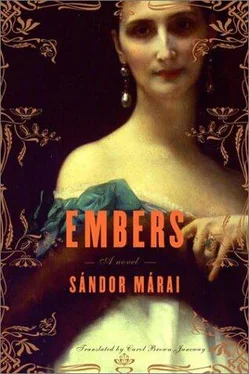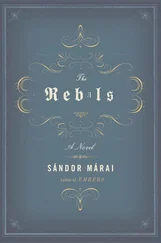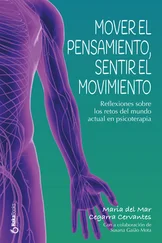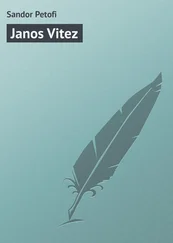“But deep inside you was a frantic longing to be something or someone other than you are. It is the greatest scourge a man can suffer, and the most painful. Life becomes bearable only when one has come to terms with who one is, both in one’s own eyes and in the eyes of the world. We all of us must come to terms with what and who we are, and recognize that this wisdom is not going to earn us any praise, that life is not going to pin a medal on us for recognizing and enduring our own vanity or egoism or baldness or our pot-belly. No, the secret is that there’s no reward and we have to endure our characters and our natures as best we can, because no amount of experience or insight is going to rectify our deficiencies, our self-regard, or our cupidity. We have to learn that our desires do not find any real echo in the world. We have to accept that the people we love do not love us, or not in the way we hope. We have to accept betrayal and disloyalty, and, hardest of all, that someone is finer than we are in character or intelligence.
“Over the course of my seventy-five years here in the middle of the forest, I have learned this much. But you have not been able to accept it,” he says softly, definitively. Then he stops, and his eyes stare blindly into the half-darkness.
After a pause, as if to excuse his guest, he starts again: “Of course, you didn’t know any of this when you were a child. That was a magical time. With age, memory enlarges every detail and presents it in the sharpest outline. We were children and we were friends: that is a great gift and we should thank fate for it. But then your character took shape and you found it intolerable that something inside you was lacking, something that I had, whether it was in the genes, or came from my upbringing, or maybe the good Lord God … so what was this something?
Was it some talent? Or was it just that people were indifferent to you, or occasionally hostile, whereas they smiled at me and gave me their trust? You despised this trust and these friendships, but at the same time you envied them desperately. You must have sensed-not in so many words, of course, but in some inchoate way-that anyone who is a general favorite is in some fashion a whore.
“There are people who are loved by everyone, who are always being spoiled and forgiven with a smile, and who are indeed too willing to please, a little whorish.
“You see, I’m no longer afraid of words,” he says and smiles, as if to encourage similar candor in his guest.
“Solitude brings knowledge, and then there is nothing to fear anymore.
Those who have, in fact, been singled out as the favorites of the gods really do consider them selves to be the elect, and they present themselves to the world with overweening assurance. But if that is how you saw me, then you were mistaken, and your envy distorted your vision.
I do not wish to defend myself, because what I want is the truth, and whoever does that must start the search inside himself. What you took to be God-given favor in me and around me was nothing more than instinctive trust. I believed the best of the world until the day … well, the day I stood in the room you had abandoned. Maybe it was that very trustingness that made people wish me well, trust me in turn, and offer me their friendship. There was something in me then-I am speaking of the past and of something so far away that I might as well be discussing a stranger or someone long dead-some kind of lightness and lack of preconceptions that disarmed people. There was a period of my life, ten years of my youth, when the world was tolerant of my presence and my needs. A time of grace. Everyone comes rushing toward you as if you are a conqueror to be fęted with wine and wreaths of flowers and girls. And indeed throughout that decade in Vienna, in the academy and then the regiment, I never once lost the certainty that the gods had set a secret invisible ring on my finger that would always bring me luck and protect me from severe disappointments, and that I was surrounded by trust and affection. No one could ask more of life, it is the greatest blessing of all.” He pauses, and his tone darkens.
“But if anyone allows it to go to his head, or becomes presumptuous or arrogant, or loses the humility to remember that fate is indulging him, or fails to understand that this golden situation can last only as long as we refrain from turning the gold into cheap coin and squandering it, he will go under. The world spares only those who remain modest and humble-and even then only for an interval, no more. You hated me,” he says flatly. “As youth slowly passed, as the magic childhood faded, our relationship began to cool. There is no feeling sadder or more hopeless than the cooling of a friendship between two men. Between a man and a woman a delicate web of terms and conditions is always negotiated.
Between men, on the other hand, the deep sense of friendship rests on its selflessness: we expect no sacrifices, no tenderness from each other, all we want is to preserve a pact wordlessly made between us.
Perhaps I was really the guilty one, because I did not know you well enough. I accepted that you did not reveal yourself completely to me, I admired your intelligence and your strange, bitter pride, I wanted to believe that you would forgive me as other people did because of this happy capacity I had to circulate in the world and to be welcomed, while you were only tolerated-I hoped for your forbearance of the fact that I was on easy terms with others, and I thought you might be pleased on my behalf. Ours was a friendship out of the ancient sagas. And while I walked in the sun-shine of life, you chose to remain in the shadows. Is that also how you see it?” “You were speaking of the hunt,” says Konrad evasively.
“Yes, I was,” says the General. “But all this is part of it. When one man decides to kill another, much has happened already; he does not simply load his gun and take aim. For example, what happens may be what I have been talking about, namely that you couldn’t forgive me. What happened was that once upon a time two children had a friendship that bound them so delicately together, that they might have been living cradled in the huge dreaming pads of a great water lily-do you remember how for years I grew those rare-flowering ‘ Reginas’ here in the greenhouse? — and then one day suddenly their bond cracked and broke.
The magical time of childhood was over, and two grown men stood there in their place, enmeshed in a complicated and enigmatic relationship commonly covered by the word ‘.’ We have to acknowledge this before we can talk about the hunt. One is not most guilty in the moment when one aims a weapon to kill someone. The guilt already exists, the guilt is in the intention. And if I say that this bond broke one day, then I have to know whether that is really true or not, and if it is, then I have to know who or what broke it. We were quite different, but we belonged together, we were more than the sum of our two selves, we were allies, we made our own community, and that is rare in life.
Whatever fundamental thing was lacking in you was counterbalanced by the overabundance the world gave me. We were friends.” He says this very loudly.
“Understand, if you don’t know it already. But you must have known it, both early on and then later, in the tropics or wherever else. We were friends, and the word carries a meaning only men understand. It is time you learned its full implication. We weren’t comrades or companions or fellow-sufferers. Nothing in life can replace what we had. No all-consuming love could offer the pleasures that friendship brings to those it touches. If we had not been friends, you would not have raised your gun against me that morning on the hunt in the forest. And if we had not been friends, I would not have gone next day to the apartment to which you had never invited me, where you hoarded the dark incomprehensible secret that poisoned things between us. And if you were not my friend, you would not have fled the city that day, fled my presence and the scene of the crime like a murderer and a criminal; you would have stayed, you would have deceived and betrayed me, and that might well have hurt me deeply, wounded my vanity and my sense of self, but none of that would have been as terrible as what you did. Because you were my friend. And if that had not been true, you would not have come back after forty-one years, again like a murderer or a criminal stealing back to the scene of the crime.
Читать дальше












